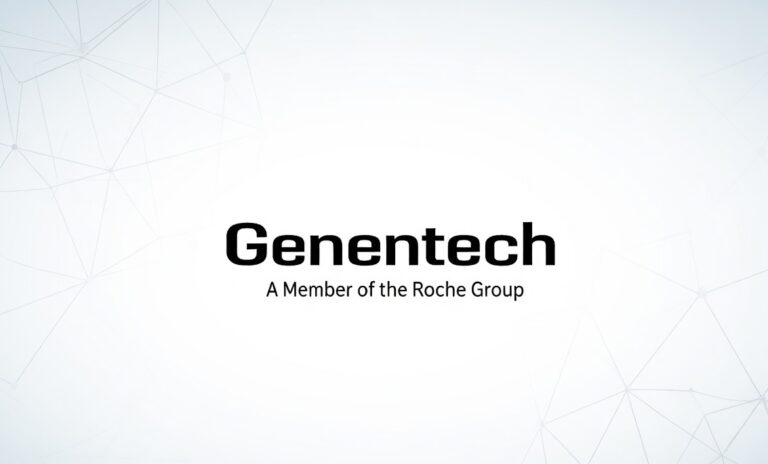
FDA Grants Full Approval to Bayer’s VITRAKVI® (Larotrectinib), a Landmark TRK Inhibitor for Patients with NTRK Fusion-Positive Solid Tumors
In a milestone for precision oncology, Bayer announced today that the U.S. Food and Drug Administration (FDA) has granted full regulatory approval for VITRAKVI® (larotrectinib). This groundbreaking therapy is the first treatment of its kind designed specifically for adult and pediatric patients with solid tumors harboring a neurotrophic receptor tyrosine kinase (NTRK) gene fusion, without a known acquired resistance mutation. The drug is approved for patients whose disease is metastatic or where surgical resection is likely to cause severe morbidity, and who lack satisfactory alternative treatment options or have experienced progression following prior therapy.
This full approval marks a significant evolution in the cancer treatment paradigm, elevating larotrectinib from its earlier status under accelerated approval—which it received in November 2018—into a fully endorsed, evidence-based therapy supported by robust clinical data. It also positions larotrectinib as a key component in the growing class of tumor-agnostic therapies, where treatment is driven not by tumor location but by underlying genetic mutations.
A Decade in the Making: The Path to Full Approval
Bayer’s full FDA approval for VITRAKVI is the culmination of years of pioneering work in oncology research, genomic profiling, and targeted therapy development.
“This first full approval of an NTRK inhibitor by the FDA represents the culmination of research and dedication by the Bayer team,” stated Chandra Goda, Executive Director and U.S. VITRAKVI Brand Lead. “We are proud to deliver on our promise for patients with this significant step forward, providing a treatment option for pediatric and adult patients living with NTRK gene fusion-positive cancers. This milestone reinforces Bayer’s commitment to delivering innovative solutions that address the unique needs of patients and their families.”
The implications of this approval extend beyond Bayer’s portfolio. It serves as a proof of concept for the viability of molecularly targeted cancer therapies that are effective across a broad range of tumor types. The development of larotrectinib is a validation of precision oncology’s potential to transform cancer care from organ-based models to genetically guided interventions.
A Unifying Genetic Target Across Multiple Cancers
NTRK gene fusions are rare genetic alterations that can occur in various adult and pediatric solid tumors. These fusions involve one of the NTRK genes—NTRK1, NTRK2, or NTRK3—becoming abnormally linked to an unrelated gene, resulting in continuous activation of TRK proteins and uncontrolled cell growth.
Despite being found in a small percentage of cancers overall, NTRK gene fusions are highly oncogenic and have been identified in tumor types such as:
- Secretory breast carcinoma
- Infantile fibrosarcoma
- Salivary gland cancers
- Thyroid carcinoma
- Lung cancer
- Colorectal cancer
- Sarcomas and other rare tumor histologies
VITRAKVI represents a tumor-agnostic therapy that targets this specific driver mutation, regardless of tumor origin, offering new hope for patients with advanced or metastatic disease and limited treatment options.
Clinical Evidence from Three Groundbreaking Trials
The FDA’s decision to grant full approval for VITRAKVI was supported by a robust data package derived from three multicenter, open-label, single-arm clinical trials:
- LOXO-TRK-14001 (NCT02122913)
- SCOUT (NCT02637687)
- NAVIGATE (NCT02576431)
Together, these studies included 339 patients (adults and children) with unresectable or metastatic solid tumors harboring NTRK gene fusions. All patients had either progressed on prior systemic therapy or had locally advanced disease where surgical intervention would result in significant morbidity. The primary endpoints included Overall Response Rate (ORR) and Duration of Response (DOR), both of which were evaluated by an independent blinded review committee according to RECIST v1.1 criteria.
Key efficacy findings from the pooled analysis include:
- ORR of 60% (95% Confidence Interval [CI]: 55%–65%)
- Complete Response (CR) rate: 24%
- Partial Response (PR) rate: 36%
- 5% of the complete responders were deemed pathological complete responses, meaning that after surgical resection, no viable tumor cells were detected and no other sites of disease were present.
- The median duration of response was 43.3 months (95% CI: 32.5 months–Not Evaluable), highlighting the durability of clinical benefit.
This level of response is exceptional, especially considering the diversity of tumor types and the refractory nature of many enrolled cases.
Safety Profile and Adverse Reactions

The safety of VITRAKVI was evaluated in a broader cohort of 444 patients treated across the three clinical trials. The safety findings reinforce the generally favorable profile of larotrectinib, particularly given the severity of illness in the treated population.
The most commonly reported adverse events (≥20%)—including laboratory abnormalities—were:
- Elevated AST and ALT
- Anemia
- Hypoalbuminemia
- Musculoskeletal pain
- Increased alkaline phosphatase
- Leukopenia, lymphopenia, and neutropenia
- Hypocalcemia
- Fatigue
- Vomiting, nausea, diarrhea, constipation
- Cough, pyrexia
- Dizziness and rash
Serious adverse events were infrequent but included central nervous system (CNS) disorders, bone fractures, and liver dysfunction. These were managed with dose modifications, treatment interruptions, or discontinuation when necessary.
Endorsement from the Advocacy Community
The full FDA approval of VITRAKVI has been met with enthusiastic support from the oncology advocacy community, which has long championed efforts to bring more personalized and genetically targeted treatments to patients.
Andrea Ferris, President and CEO of the LUNGevity Foundation, praised the milestone, stating:
“The full approval of VITRAKVI by the FDA is a welcome step forward, solidifying its place as a treatment option for patients with NTRK gene fusion-positive cancers. This milestone not only benefits patients today but also paves the way for further advancements in NTRK gene therapies in the future.”
Her comments underscore the broader implications of this approval—not only as a victory for patients today but also as a foundation for future innovations in molecular oncology.
A New Standard in Precision Medicine
VITRAKVI’s full approval is a significant step in redefining cancer treatment for a subgroup of patients driven by a well-characterized, actionable genetic mutation. Its success showcases the power of targeted therapies in delivering durable responses and improving quality of life, especially when conventional treatments fall short.
As oncology continues to shift toward molecular diagnostics and personalized medicine, the case of larotrectinib reinforces the importance of genomic testing in clinical decision-making. Identifying NTRK gene fusions early in a patient’s treatment journey can now unlock access to a fully FDA-approved therapy that offers meaningful clinical benefit across a wide array of tumor types.
In the coming years, Bayer is expected to continue expanding its footprint in precision oncology, building on the scientific platform established with VITRAKVI and exploring next-generation TRK inhibitors that may overcome resistance mechanisms.





